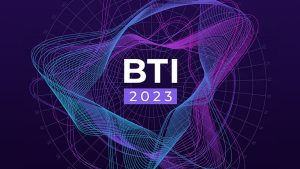The introduction of the General Data Protection Regulation (GDPR), California Consumer Privacy Act (CCPA), and Data Protection Shield give expression to this new stringent approach from global regulators to proactively safeguard user data.
This has, of course, had far-reaching ramifications for businesses across the industry spectrum, not least companies in the banking and financial services sector (BFS) who have had to take a hard look at how they handle and store user data in an increasingly competitive market. As part of nurturing a strong culture of compliance internally, upholding the highest levels of security and integrity around system architecture is of paramount importance. With the risk of cybercrime causing disruption to service delivery at an all-time high, BFS companies need to examine who carries out their audits as a matter of urgency, and harness the power of data privacy automation as a mechanism for building trust among customers and upholding regulatory compliance.
Data privacy automation and customer trust
It goes without saying, but the importance of building and maintaining trust with consumers has never been more pronounced for established BFS companies, particularly given the influx of agile neobanks offering tailored, customer-centric solutions. As they’re asking people to trust them with their money, savings and personal data, the stakes couldn’t be much higher. Heightened consumer expectations for absolute vigilance and data safeguarding compounds the case for data privacy automation, which refers to the process of automating the handling of data, consent, and regulatory constraints. Previously, data protection strategies generally focused on keeping malicious actors out of systems where sensitive data is stored. But with cloud computing, data is stored in systems that are outside the traditional perimeter and can flow freely everywhere. Therefore, BFS companies need a more comprehensive data-centric strategy that prioritizes their most sensitive customer information.
Data privacy automation as a compliance tool
The shifting regulatory goal posts have strengthened the enterprise case for data privacy automation, which would enable BFS companies to rapidly and decisively respond to any prospective data breach or security threat, all while maintaining a tight audit trail. Due to the heavy penalties for falling foul of regulatory frameworks, banks must take proactive action to effectively mitigate the risk of damaging setbacks. Data privacy automation can extend to data mapping and DPIAs (Data Protection Impact Assessments) – which retires the manual inputting of paper forms and facilitates more streamlined compliance recordkeeping. BFS companies attuned to the benefits of data privacy automation will also be able to fast-track decision making and quickly implement new requirements through agile working methods, informed by up to the minute data points.





